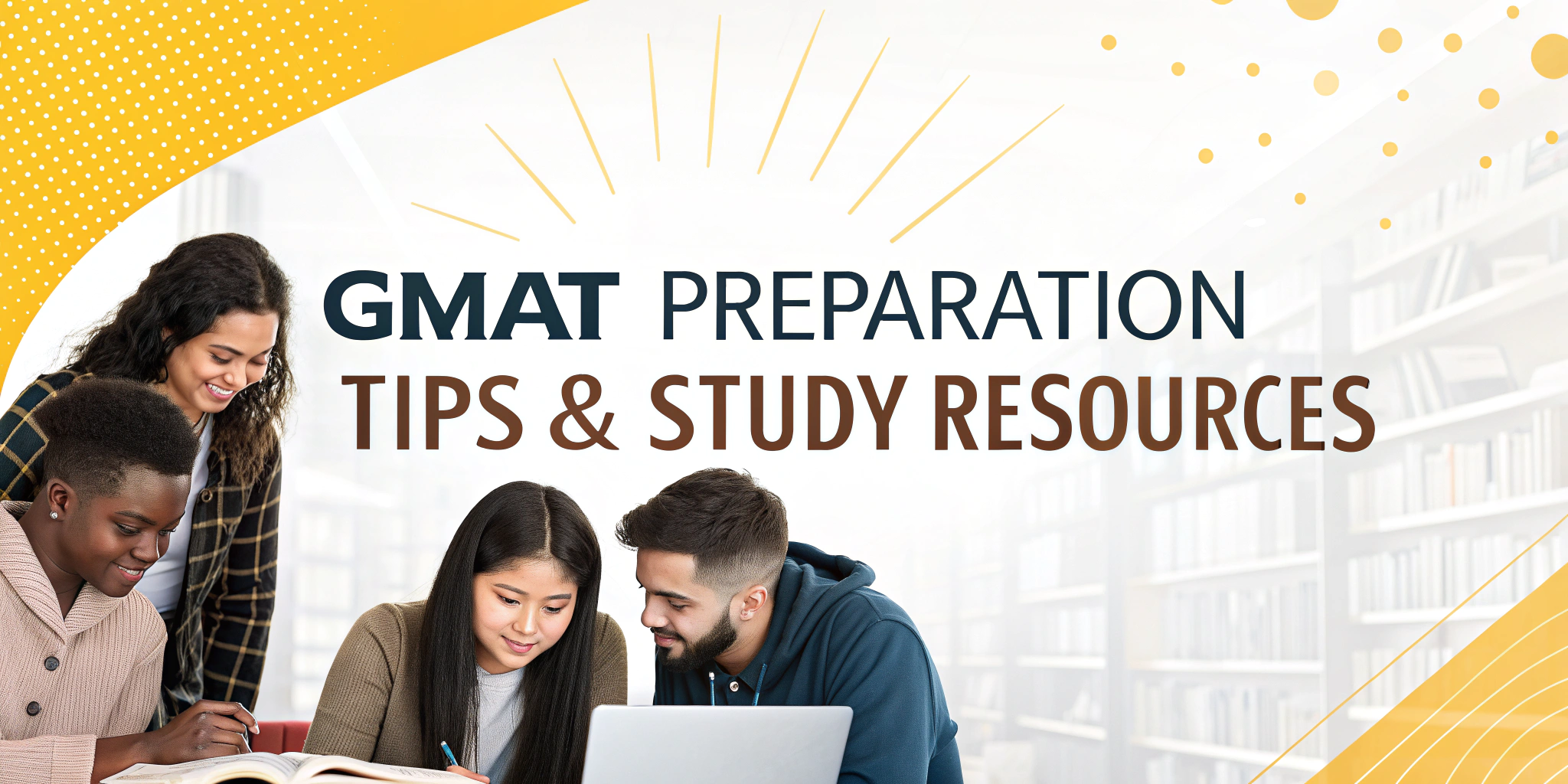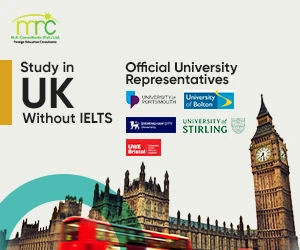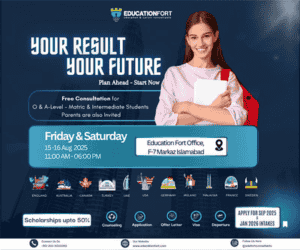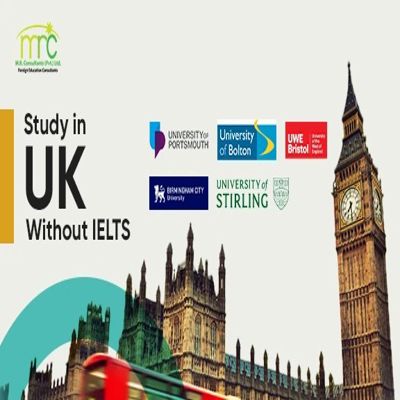GMAT Preparation Tips & Study Resources

Study abroad expert advice
Don't waste time! just fill the form to get help.
The Graduate Management Admission Test (GMAT) is a globally recognized entrance exam for admission into MBA and other business-related programs. For Pakistani students and international candidates alike, achieving a high GMAT score is essential to securing admission to top business schools and winning scholarships.
This guide provides expert GMAT preparation tips and a curated list of study resources to help you plan effectively, study efficiently, and perform your best on test day.
Understand the GMAT Structure Before You Start
Before diving into preparation, familiarize yourself with the GMAT exam format and scoring:
- Analytical Writing Assessment (AWA) – 1 essay, 30 minutes
- Integrated Reasoning (IR) – 12 questions, 30 minutes
- Quantitative Reasoning (Quant) – 31 questions, 62 minutes
- Verbal Reasoning (Verbal) – 36 questions, 65 minutes
- Total Duration: About 3 hours 7 minutes (excluding optional breaks)
- Score Range: 200–800 for the total score
Knowing the format helps you create a targeted preparation strategy and identify your strengths and weaknesses early on.
Create a Personalized GMAT Study Plan
A structured GMAT study plan keeps you consistent and focused. Here’s how to make one:
- Set a Target Score: Research your desired business schools to find their average GMAT requirements.
- Decide on a Timeline: Most students require 2–4 months of dedicated preparation.
- Daily Goals: Allocate specific hours for Quant, Verbal, IR, and AWA.
- Weekly Reviews: Assess progress through practice tests or question sets.
- Flexibility: Adapt your plan based on your performance in mock exams.
Focus on Building Core Skills
Rather than memorizing, aim to develop fundamental skills:
Quantitative Section
- Master data sufficiency and problem-solving techniques.
- Strengthen basics in algebra, arithmetic, geometry, and number properties.
- Practice mental math to save time.
Verbal Section
- Improve reading comprehension by analyzing business articles and academic texts.
- Learn grammar rules for sentence correction.
- Develop critical reasoning strategies to identify assumptions and logical flaws.
Integrated Reasoning
- Practice interpreting data from graphs, charts, and tables.
- Improve your ability to synthesize multiple information sources.
Analytical Writing Assessment
- Structure essays with clear arguments and supporting examples.
- Practice under timed conditions to ensure you finish within 30 minutes.
Use High-Quality GMAT Study Materials
Your choice of GMAT study resources can make a significant difference. Here are some recommended options:
Official GMAT Resources
- GMAT Official Guide (OG): Comprehensive with real past questions.
- GMAT Official Practice Exams: Simulates the real test environment.
Popular GMAT Prep Books
- Manhattan Prep GMAT Strategy Guides – Excellent for in-depth topic coverage.
- Kaplan GMAT Prep Plus – Balanced mix of strategies and practice questions.
- Veritas Prep GMAT Books – Great for advanced test-takers.
Online GMAT Courses
- Magoosh GMAT Prep – Affordable, with video lessons and practice questions.
- Target Test Prep – Highly rated for Quant improvement.
- Princeton Review GMAT – Good for structured learning and tutoring options.
Free GMAT Resources
- GMAT Club forum – Community discussions, question banks, and reviews.
- Beat The GMAT – Free articles, practice tests, and prep tips.
- Official GMATPrep Software – Two free practice tests from GMAC.
Practice with Timed Tests
The GMAT is as much about time management as it is about knowledge. Simulating real test conditions helps:
- Take full-length practice tests every 1–2 weeks.
- Review mistakes in detail to understand concepts, not just correct answers.
- Identify patterns—are you losing points due to speed, carelessness, or lack of understanding?
Learn Strategic Test-Taking Techniques
Small strategic changes can boost your score:
- Pace Yourself: Avoid spending too long on a single question.
- Guess Smartly: Eliminate obviously wrong answers before guessing.
- Prioritize Accuracy Early: The GMAT uses a computer-adaptive format—your first few questions influence difficulty level.
- Take Notes: Use the provided notepad for calculations and outlining essay ideas.
Improve Weak Areas First
- Track your performance by section and topic.
- Dedicate extra time to low-performing areas instead of repeatedly practicing strengths.
- Use error logs to track recurring mistakes.
Incorporate Daily English & Math Practice
For non-native English speakers and those who’ve been away from math for a while:
- Read business journals, newspapers, and analytical reports daily.
- Solve mental math problems in daily life—like calculating discounts or averages.
- Practice vocabulary and grammar to boost verbal skills naturally.
Recommended GMAT Preparation Timeline
Study Duration | Weekly Hours | Key Focus Areas |
3 Months | 10–15 | Core skills, practice questions, and 4–5 mock tests |
6 Months | 5–8 | Gradual skill-building, targeted weak areas, frequent reviews |
1 Month | 15–20 | Intensive review, timed tests, and test-day simulations |
Final Words
Scoring high on the GMAT requires discipline, strategic preparation, and quality study resources. By understanding the exam format, following a structured study plan, practicing with official materials, and regularly reviewing performance, you can maximize your chances of achieving your target score. Remember, the GMAT is not just a test of knowledge—it’s a test of time management, critical thinking, and problem-solving skills.












